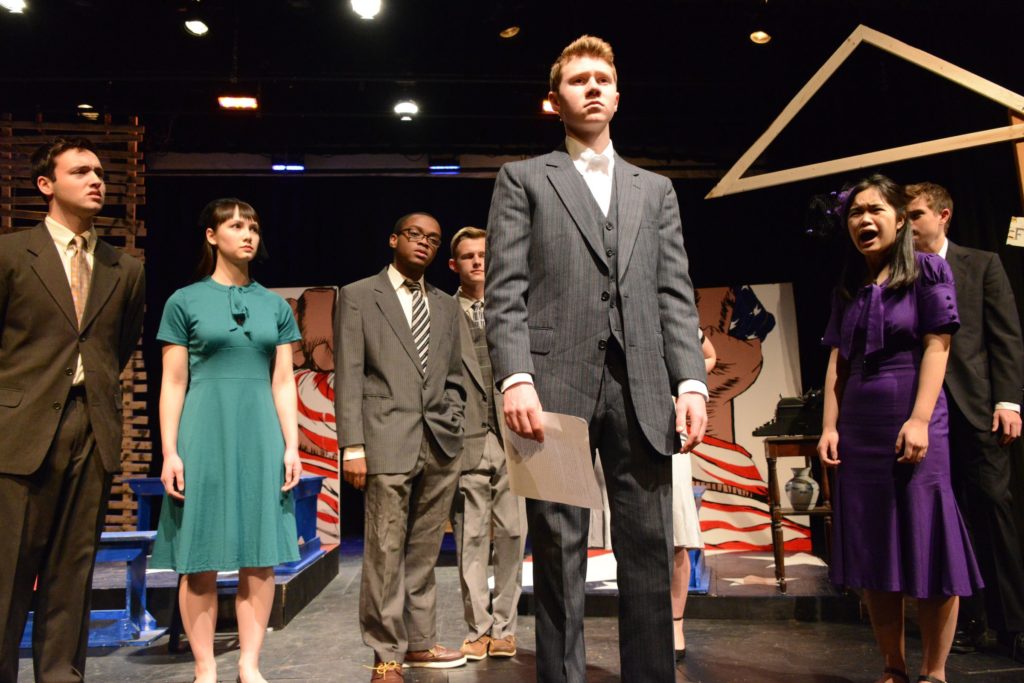“It Can’t Happen Here” is this Fall’s Senior Play
On November 16 and 17, RL’s thespians performed this year’s Senior Play, “It Can’t Happen Here,” based on the 1935 semi-satirical novel by Sinclair Lewis. Published during the rise of fascism in Europe, the story follows the ascent of Buzz Windrip, a charismatic and power-hungry politician who is elected President of the United States on a populist platform—sewing fear and promising economic and social reform, while promoting a return to patriotism and “traditional” values. After his election, Windrip takes control of the government imposing totalitarian rule. The plot centers on journalist Doremus Jessup’s opposition to the new regime and his subsequent struggle against it as part of a liberal rebellion.
The novel was originally adapted for the stage in 1936; in 2016 Tony Taccone and Bennett Cohen were inspired to update that adaptation of a storyline that feels prescient more than eighty years later. In their adapter’s notes, Taccone and Cohen wrote: “Mr. Lewis was a singular artist, and his ability to grasp the complexity and underpinnings of American society and to reimagine the world continues to be a source of inspiration. With this play, we hope to sustain his artistic legacy and to translate his overreaching vision into a compelling piece of theatre.”
There is a long tradition of playwrights using theatre to pose intriguing and startling “what ifs” about history and politics. Arthur Miller’s “The Crucible” reimagines the Salem Witch Trials as a way to discredit McCarthyism. “Inherit the Wind,” which Class V boys read, dramatizes the 1925 Scopes “Monkey Trial,” putting the Constitutional issue of the separation of church and state front and center. More recently, American novelist Philip Roth performed a feat of political revisionism in 2004 with his novel “The Plot Against America.” Unlike Lewis’s novel, Roth made his interpretation of history autobiographical. While none of the characters portrayed in “It Can’t Happen Here” are actual figures from the past, some of the historical politicians and ideologues referenced by those characters—Roosevelt, Huey Long, Karl Marx—were real people with influential ideas and enduring political legacies.
In addition to a strong cast of 19, and a tech crew of 15, the production was enhanced by original music compositions by Jonathan Weiss, Class II. Writing and scoring music for two violins, a viola and cello, Jonathan developed the music that played during five interludes. (It was pre-recorded in Rousmaniere Hall by the student quartet of Elias Simeonov (I), Alex Yin (IV), Eli Mamuya (V), and Justin Shaw (V).) “Jonathan is very attentive to the nuances in a text and how those might be translated into music,” says Director of Dramatics Derek Nelson—the play’s director. “We are very fortunate to have him at RL—he is a true artist and very talented composer.”

